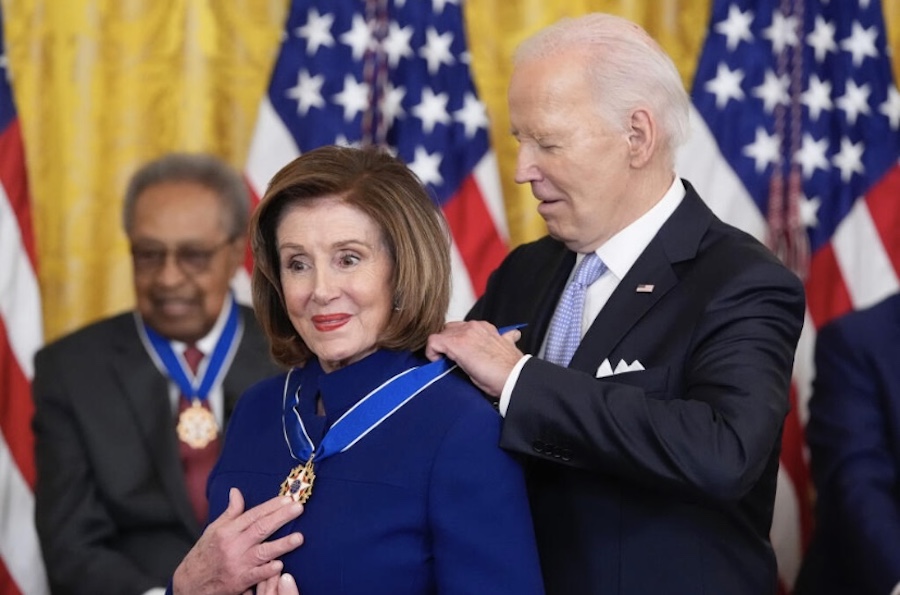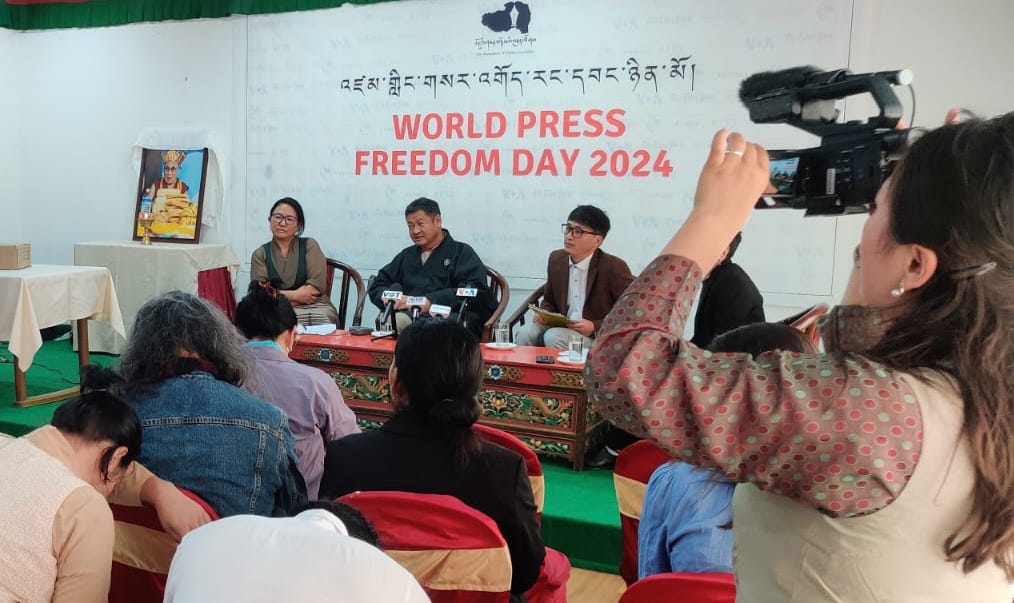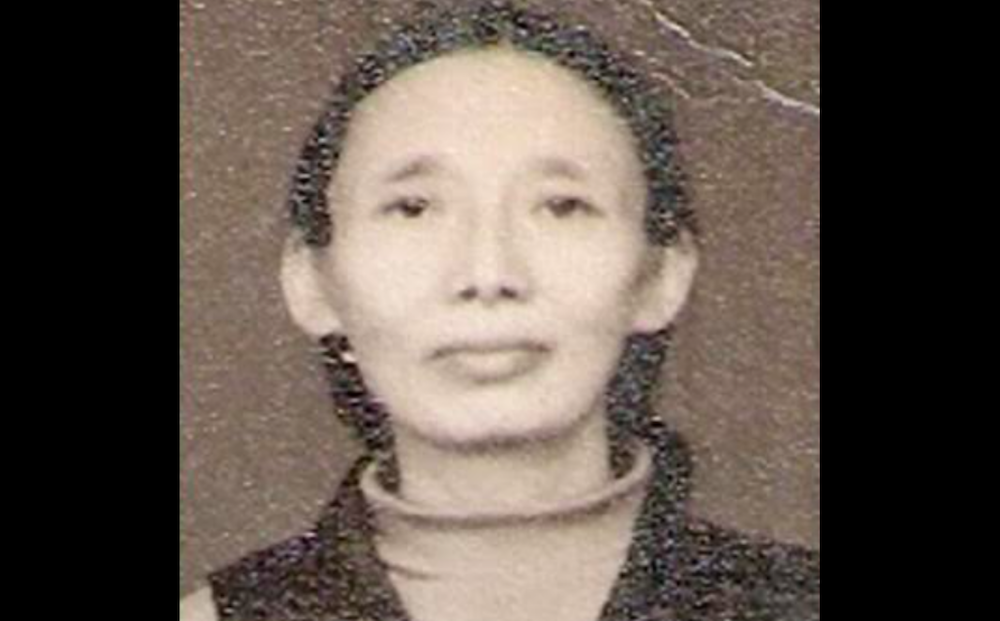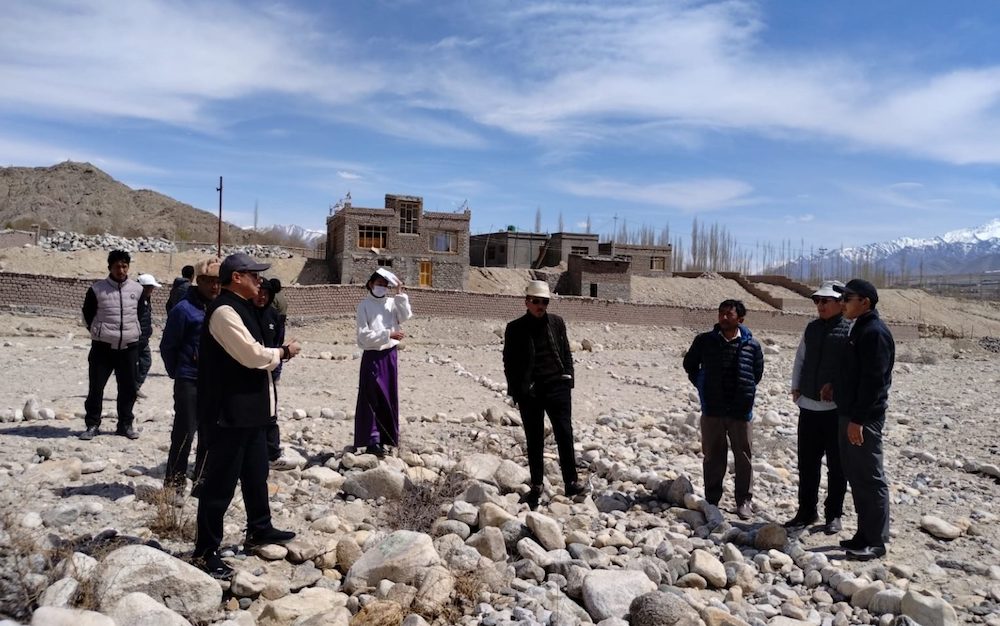 NEW DELHI – Tibet’s government-in-exile welcomed a new thaw in tensions between India and China amid a tentative dialogue process with Beijing over the future of the Himalayan territory.
NEW DELHI – Tibet’s government-in-exile welcomed a new thaw in tensions between India and China amid a tentative dialogue process with Beijing over the future of the Himalayan territory.
Sandong Rinpoche, prime minister of the exiled leadership, acknowledged that a joint declaration signed in Beijing by Indian and Chinese leaders spelled out nothing new for Tibet but marked an improvement in relations.
“We have great expectation from this visit because as India and China come closer, there is hope that there will be an amicable solution to the Tibetan question,” Rinpoche told AFP on Wednesday.
India permitted Rinpoche’s leadership and Tibetan spiritual leader the Dalai Lama to set up base in the hilltop town of Dharamsala after they fled their homeland in 1959 when Beijing crushed an anti-Chinese uprising in Lhasa.
On Monday, Chinese Premier Wen Jiabao and Indian Prime Minister Atal Behari Vajpayee signed in Beijing an agreement in which India reaffirmed its position that Tibet is part of Chinese territory.
The declaration labelled the Himalayan region as the Tibetan Autonomous Region (TAR) and called it “a territorial part of the People’s Republic of China”.
Rinpoche said the statement contained “nothing which is new”.
“India accepts China’s suzerainty over Tibet, which is not sovereignty — but these are archaic words, there is little difference as the reality is that Tibet is China’s autonomous part,” Rinpoche said.
“The basic thing is that there is an improvement in relations and words are not important,” the respected Tibetan said.
However, the militant Tibetan Youth Congress (TYC), leading an anti-China drive among Tibetans in Dharamsala, vowed to step up a campaign of protests, criticising Vajpayee for not pressing Tibet’s cause enough in Beijing.
“We vehemently condemn Vajpayee’s recognition of TAR as part of China. Once again the prime minister of India has chosen to obliterate Tibet and is resorting to perfidious strategy,” TYC president Kalsang Thantsok told AFP.
“It is terribly sad that the Indian PM is saying this which is very detrimental to the Tibetan cause but it is we who are suffering and it is we who are going to solve this,” Thantsok said.
Rinpoche brushed off Thantsok’s threats. “We think the TYC will calm down,” he said.
In Beijing on Tuesday, China’s foreign ministry spokesman Kong Quan called India’s recognition of Tibet as Chinese territory “an important and positive expression.”
But in a briefing in Beijing later the same day, Indian Foreign Minister Yashwant Sinha said India’s stated position on Tibet in the declaration does not amount to a change in policy.
He repeated the statement in an interview with the BBC Wednesday, adding that there was also no change in the policy of allowing the Dalai Lama and the Tibetan government in exile to remain in India.
The latest developments come amid tentative contacts between the Dalai Lama’s representatives and Chinese leaders.
A four-member delegation sent by the Dalai Lama to Beijing earlier this month returned to say they believed China’s leadership was sincere in wanting dialogue with the exile community but warned the process would be full of “difficulties.”
Envoys of the Dalai Lama paid a similar visit to China in September, renewing links that were severed in 1993.
China, which has occupied Tibet since 1951, has been accused of trying to wipe out Tibet’s Buddhist-based culture through political and religious repression and a flood of ethnic Chinese immigration.









